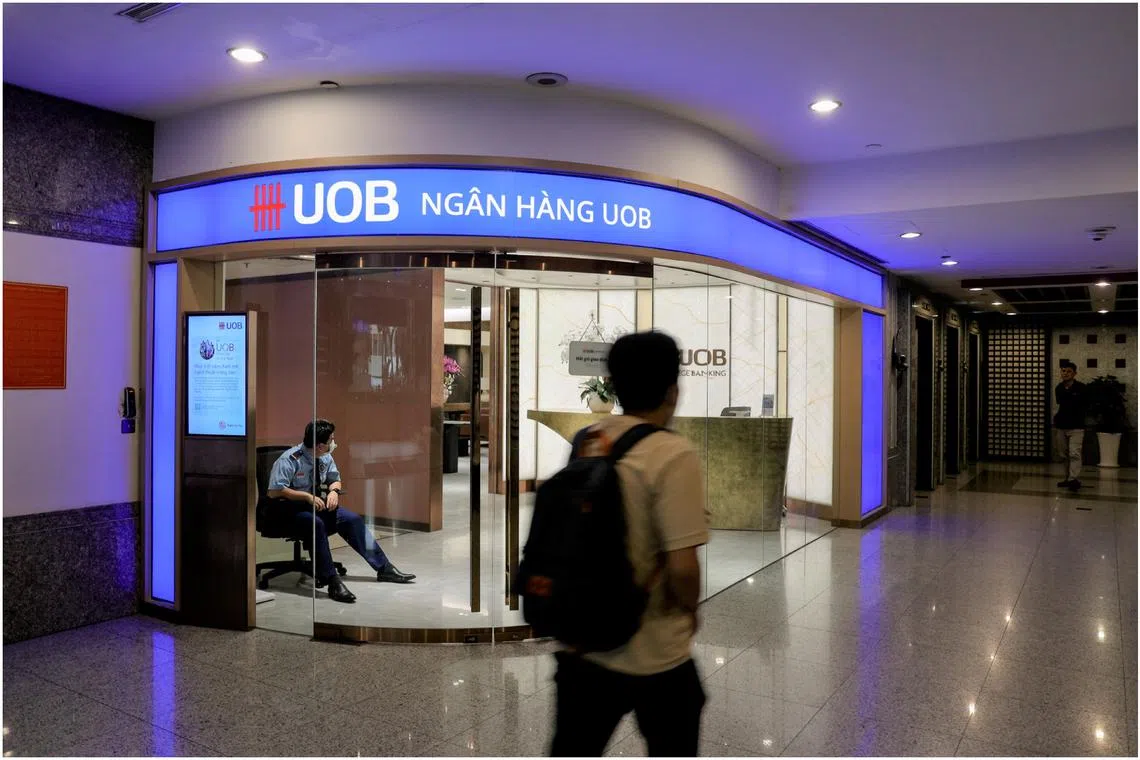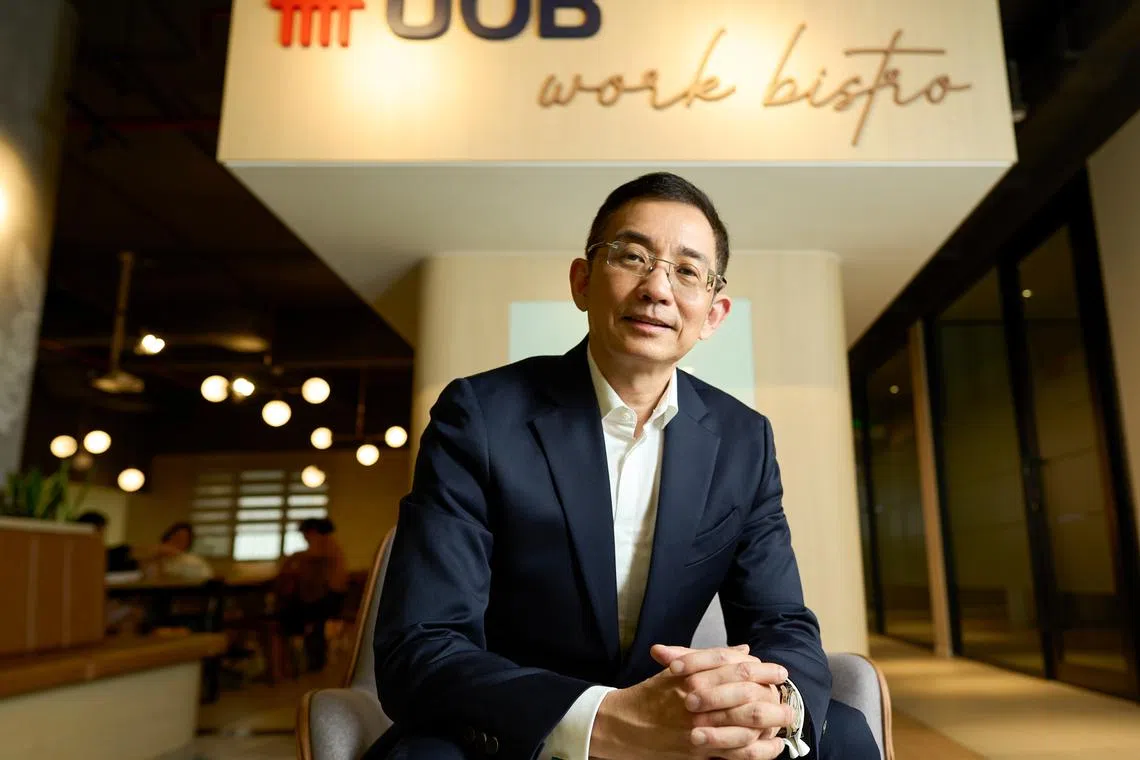UOB marks 30 years in Vietnam; set to bring in $2b more in FDI by 2025
Sign up now: Get ST's newsletters delivered to your inbox

UOB aims to grow its wholesale banking business at a 20 per cent compound annual growth rate over the next three to five years.
PHOTO: LIANHE ZAOBAO
Follow topic:
HO CHI MINH CITY – UOB, the first Singapore bank to set up shop in Vietnam 30 years ago, is now pressing home its advantage to meet the banking needs of emerging middle-class consumers and the companies serving them there.
The bank’s foreign direct investment (FDI) advisory arm in Vietnam is set to facilitate $2 billion in FDI in the next three years, starting from 2023, UOB Vietnam chief executive Victor Ngo said in an interview.
This builds on the $5.8 billion in FDI from 250 companies spanning the industrial, real estate and consumer goods sectors it has already facilitated since 2013, he told visiting Singapore reporters at UOB Vietnam’s Ho Chi Minh City headquarters on July 4.
Mr Ngo said the share of revenue contributed by the FDI advisory arm to UOB Vietnam is expected to remain steady, growing in tandem with both its wholesale and consumer banking businesses.
While declining to provide revenue numbers, he said that UOB aims to grow its wholesale banking business in Vietnam at a 20 per cent compound annual growth rate over the next three to five years.
“I think we want to do more, so let’s see if we can uplift the number a little bit,” said the banking veteran of over 30 years who joined UOB in 2004, serving as chief executive of UOB Vietnam since June 2022.
Mr Ngo also provided updates on UOB Vietnam’s acquisition of Citi’s consumer banking business
Although UOB Vietnam is no stranger to consumer banking, offering auto loans since 2003, and mortgages since 2017, the purchase rounds out its offerings.
“Basically, with the acquisition of the Citi portfolio, we add on unsecured products including credit card and personal loans, so now we have a complete suite of products and services within UOB Vietnam,” Mr Ngo said. He added that the acquisition tripled UOB Vietnam’s customer base and doubled its assets overnight, which is growth the bank hopes to build on.
“Currently we don’t have a lot of overlap between Citibank customers and UOB’s existing customers… so we are able to do cross-selling of products, (which) we currently have got very good traction on.”
UOB was the first Singapore bank to establish a foreign-owned subsidiary in Vietnam in 2017. It entered the market in 1993 with a representative office of three people in Ho Chi Minh City, before setting up a branch there in 1995, and in Hanoi in 2019.

Mr Victor Ngo has served as UOB Vietnam's chief executive since June 2022.
PHOTO: UOB
Mr Ngo declined to reveal growth targets for the consumer banking business, but said UOB Vietnam’s target market is those who are “emerging affluent and above” in Vietnam.
Most of the people in this group reside in Ho Chi Minh City and Vietnamese capital Hanoi, earning about $10,000 a year and up currently, he said.
According to government statistics, the average monthly wage in Vietnam in 2022 was 7.5 million Vietnamese dong (S$423).
“Our aspiration is about 10 per cent of… the emerging affluent based in Ho Chi Minh City and Hanoi by 2026,” he added, citing a McKinsey report estimating that 36 million people in Vietnam will belong to this consumer segment by 2030.
The country’s population stands at 98.5 million, based on the latest Vietnamese government figures from 2021.
Although the acquisition legally took effect from March 1, Mr Ngo said UOB Vietnam would need till the end of 2024 or early 2025 to fully integrate Citi’s customers into UOB’s systems.
On the hiring front, he said UOB Vietnam took on 600 employees from Citi, making for a total headcount of 1,200. It will hire more employees, in line with business needs surrounding cash management and supply chain, among other areas, but there is no target headcount.
Mr Ngo added: “In terms of retail (banking), we have a very good talent pool from Citi, so I think the question is one of scaling up, which I don’t think is an issue because (when) we have the strength, we can always attract more people.”

